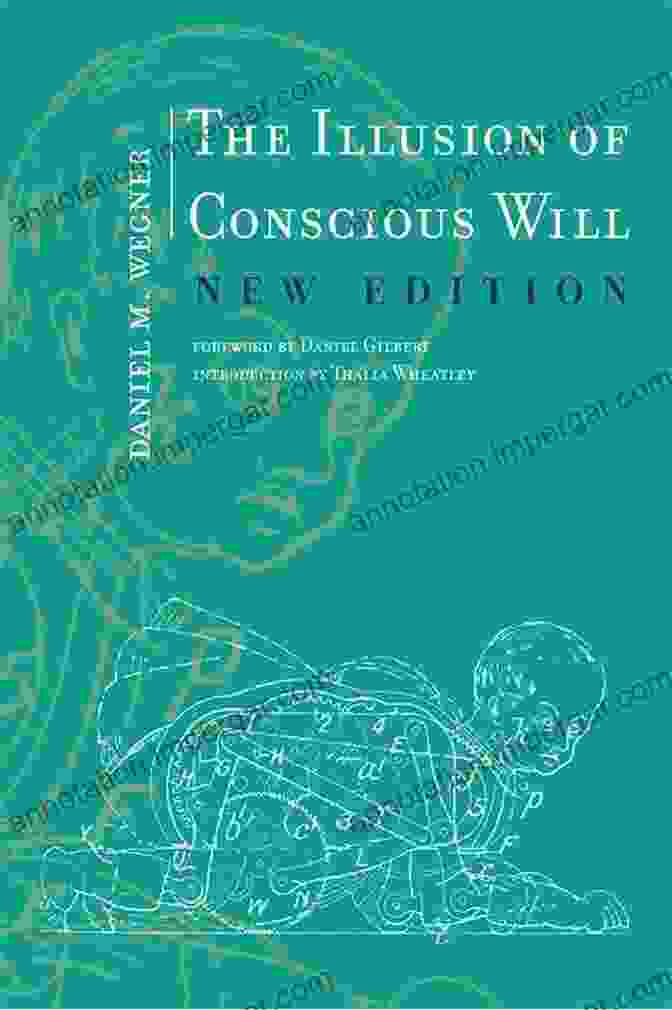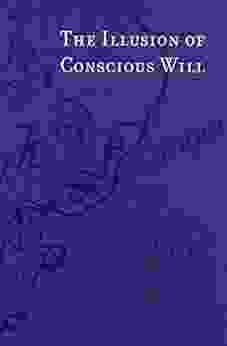Unveiling the Illusion: A Journey into the Neurobiology of Conscious Will

For centuries, humans have grappled with the enigma of free will. The question of whether we are truly in control of our actions or mere puppets of our unconscious mind has fascinated philosophers, scientists, and the general public alike. In recent years, groundbreaking research in neuroscience has shed new light on this ancient debate, challenging the long-held belief that we possess conscious control over our thoughts and actions.
In his thought-provoking book, "The Illusion of Conscious Will," renowned psychologist Daniel Wegner argues that conscious will is merely an illusion, a subjective experience that we impose upon our actions after they have already occurred. Drawing upon decades of scientific studies, Wegner presents a compelling case that the brain's decision-making processes are largely unconscious, with conscious awareness arising only after the decisions have been made.
The Neurobiology of Decision-Making
To understand the illusion of conscious will, we must delve into the intricate workings of the human brain. Neuroimaging studies have revealed that when we make decisions, certain brain areas become active well before we consciously experience intending to act. For example, studies using electroencephalography (EEG) have shown that neural activity related to hand movements can be detected in the motor cortex up to a second before the conscious decision to move is made.
These findings suggest that decisions are often initiated by unconscious neural processes, with conscious awareness playing a minor role. Wegner proposes that conscious will is a retrospective illusion, a post-hoc narrative that we create to make sense of our actions. He likens conscious will to a passenger in a car, observing the journey but not actually steering the vehicle.
Implications for Morality and Responsibility
The illusion of conscious will has profound implications for our understanding of morality and responsibility. If our actions are not the result of conscious choices, can we truly be held accountable for them? Wegner argues that our sense of responsibility must shift from personal agency to an understanding of the complex biological and environmental factors that shape our behavior.
The concept of diminished responsibility has been employed in legal settings, recognizing that individuals with certain mental illnesses may not fully understand the consequences of their actions. The illusion of conscious will suggests that all human actions are influenced by unconscious factors, potentially blurring the line between responsibility and extenuating circumstances.
The Search for True Control
While the illusion of conscious will challenges our traditional notions of free will, it does not negate the importance of personal agency. Wegner argues that true control lies not in the illusion of conscious choice, but in our ability to shape our unconscious processes. By understanding the mechanisms of unconscious decision-making, we can gain greater control over our automatic behaviors and impulses.
Through mindfulness practices, meditation, and self-reflection, we can cultivate awareness of our unconscious thoughts and intentions. By intervening in the early stages of decision-making, we can steer our actions towards more desirable outcomes.
Daniel Wegner's "The Illusion of Conscious Will" is a groundbreaking work that challenges our fundamental beliefs about free will and human agency. Through rigorous scientific research, Wegner demonstrates that conscious will is an illusion, a retrospective narrative that we impose upon our actions.
This revelation has profound implications for our understanding of morality, responsibility, and personal control. However, it also opens up new possibilities for self-awareness, personal growth, and a deeper understanding of the intricate workings of the human brain. By embracing the illusion of conscious will, we can paradoxically gain greater control over our unconscious processes and live more intentional and fulfilling lives.
About the Author
Daniel Wegner is an acclaimed social psychologist and professor at the University of Virginia. His research focuses on the nature of human consciousness and the illusion of control. Wegner's groundbreaking work has earned him numerous awards, including the William James Fellow Award from the American Psychological Association.

Do you want to contribute by writing guest posts on this blog?
Please contact us and send us a resume of previous articles that you have written.
 Book
Book Novel
Novel Page
Page Chapter
Chapter Text
Text Story
Story Genre
Genre Reader
Reader Library
Library Paperback
Paperback E-book
E-book Magazine
Magazine Newspaper
Newspaper Paragraph
Paragraph Sentence
Sentence Bookmark
Bookmark Shelf
Shelf Glossary
Glossary Bibliography
Bibliography Foreword
Foreword Preface
Preface Synopsis
Synopsis Annotation
Annotation Footnote
Footnote Manuscript
Manuscript Scroll
Scroll Codex
Codex Tome
Tome Bestseller
Bestseller Classics
Classics Library card
Library card Narrative
Narrative Biography
Biography Autobiography
Autobiography Memoir
Memoir Reference
Reference Encyclopedia
Encyclopedia David Geherin
David Geherin Danny Iny
Danny Iny Danielle J Whittaker
Danielle J Whittaker Fritz Breithaupt
Fritz Breithaupt Darlene Lancer
Darlene Lancer David Herres
David Herres Darcy Carter
Darcy Carter Rebecca Cupcake Tinnes
Rebecca Cupcake Tinnes J Russell Smith
J Russell Smith Yolanda Prieto
Yolanda Prieto Guido Calabresi
Guido Calabresi Daniel Mcbrearty
Daniel Mcbrearty Stefanie Caponi
Stefanie Caponi Daniel J Lewis Md
Daniel J Lewis Md Interweave Editors
Interweave Editors Daniel P Beard
Daniel P Beard Robert J Wright
Robert J Wright Norio Sato
Norio Sato Rhys Ford
Rhys Ford David Donovan
David Donovan
Light bulbAdvertise smarter! Our strategic ad space ensures maximum exposure. Reserve your spot today!

 Amir SimmonsUnravel the Interwoven Fabric of Politics and Society: Immerse Yourself in...
Amir SimmonsUnravel the Interwoven Fabric of Politics and Society: Immerse Yourself in...
 Virginia WoolfLanguage in the Negotiation of Justice: Empowering Your Voice in the Pursuit...
Virginia WoolfLanguage in the Negotiation of Justice: Empowering Your Voice in the Pursuit...
 Eric NelsonMaster the Art of Interviewing and Interrogation: An Indispensable Guide for...
Eric NelsonMaster the Art of Interviewing and Interrogation: An Indispensable Guide for...
 Ignacio HayesAll That The Rain Promises And More: A Literary Journey into the Heart of...
Ignacio HayesAll That The Rain Promises And More: A Literary Journey into the Heart of... Ryūnosuke AkutagawaFollow ·3.3k
Ryūnosuke AkutagawaFollow ·3.3k Ray BlairFollow ·5.1k
Ray BlairFollow ·5.1k Dominic SimmonsFollow ·16.7k
Dominic SimmonsFollow ·16.7k Demetrius CarterFollow ·7.7k
Demetrius CarterFollow ·7.7k Jorge AmadoFollow ·11.4k
Jorge AmadoFollow ·11.4k Corey HayesFollow ·4.7k
Corey HayesFollow ·4.7k Jesse BellFollow ·14k
Jesse BellFollow ·14k Terry BellFollow ·4.2k
Terry BellFollow ·4.2k

 Phil Foster
Phil FosterBuild Your Own 12 Tray Fodder System: Half Pint Homestead...
Are you ready...

 Curtis Stewart
Curtis StewartUnleash the Power of Evolutionary Psychology: Embark on a...
Embark on an...

 Voltaire
VoltaireExcel Scientific and Engineering Cookbook: The Ultimate...
Working in science and engineering often...

 Alan Turner
Alan TurnerGroup Theory and Chemistry: Unveiling the Symmetry and...
In the realm of...








